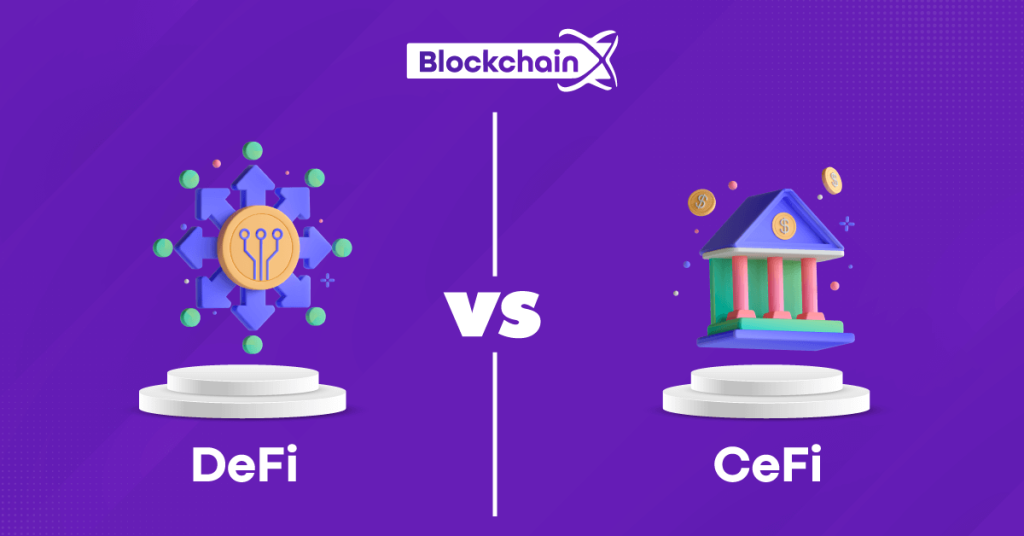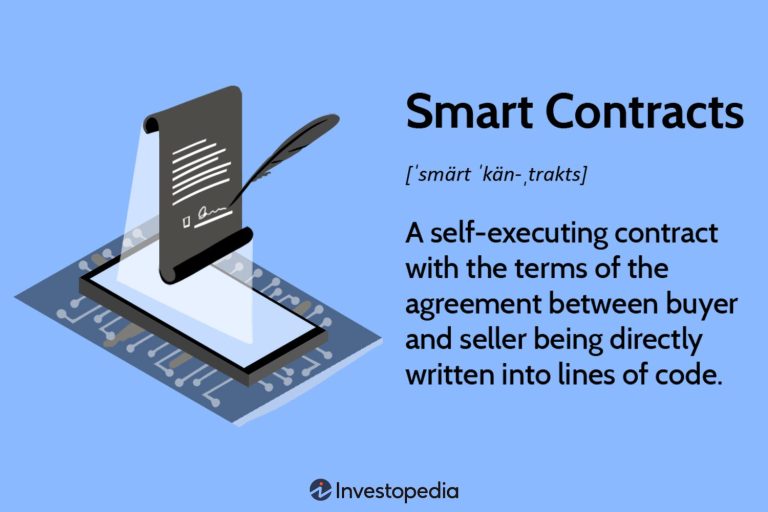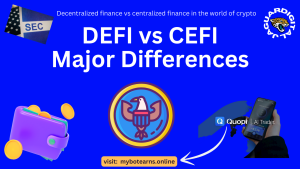DEFI VS. CEFI - The Crypto World
Centralized Finance (CeFi) and Decentralized Finance (DeFi) represent two fundamentally different approaches to financial systems within the cryptocurrency space. Here are the major differences between them:

Control and Authority
CeFi: Centralized finance platforms are operated by centralized entities, such as banks, financial institutions, or specific companies. These entities have full control over the platform, its rules, and user funds.
DeFi: Decentralized finance operates on blockchain technology, utilizing smart contracts. In DeFi, there is no central authority; instead, protocols are governed by code and executed on a blockchain, providing a more open and permissionless system.
Intermediaries:
CeFi: Centralized finance often involves intermediaries such as banks, brokers, and other financial institutions. These intermediaries facilitate transactions, enforce regulations, and provide various financial services.
DeFi: Decentralized finance aims to eliminate intermediaries. Smart contracts on blockchain networks automate processes, enabling direct peer-to-peer transactions without the need for traditional financial middlemen.

Access and Inclusion:
CeFi: Traditional finance systems may have barriers to entry, such as account requirements, documentation, and credit checks. Access to financial services can be limited based on geographic location or economic status.
DeFi: Decentralized finance is generally more inclusive, as it often operates on public blockchains that anyone can access. Users only need an internet connection and a compatible wallet to participate in DeFi platforms.
Censorship Resistance
CeFi: Centralized financial systems are subject to censorship and control by the governing entities. Transactions can be monitored, frozen, or restricted based on government regulations or internal policies.
DeFi: Decentralized finance platforms, being built on blockchain, offer a higher degree of censorship resistance. Since there is no central authority, transactions are less susceptible to interference or censorship.
Security
CeFi: Security in centralized finance relies on the security measures implemented by the centralized entity. If the central server is compromised, it can lead to significant vulnerabilities.
DeFi: Decentralized finance leverages blockchain’s security features. Transactions are recorded on a distributed ledger, making it more resistant to hacking or fraud. However, vulnerabilities can still exist in individual smart contracts or the underlying blockchain protocol.

Risk and Regulation
CeFi: Centralized financial systems are subject to government regulations and oversight. Users may benefit from regulatory protection, but they also have to comply with various rules and restrictions.
DeFi: Decentralized finance operates in a more autonomous and permissionless manner. While this provides more freedom, it also means users are responsible for their own security and must navigate potential legal uncertainties.
